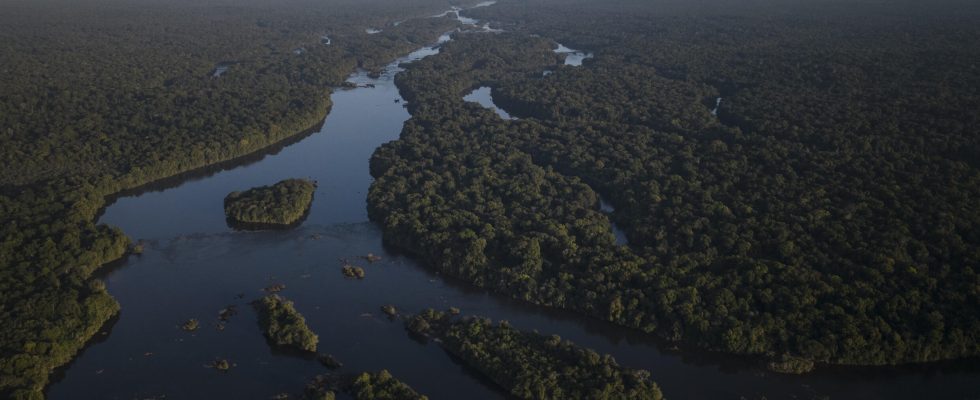Venezuelan President Nicolas Maduro on Tuesday ordered state oil giant PDVSA to grant licenses to exploit resources in the oil-rich Essequibo region, the subject of a territorial dispute with neighboring Guyana.
3 mins
On Sunday, December 3, more than 10.4 million Venezuelan voters participated in a consultative referendum, saying more than 95% in favor for the integration into their country of the region under the administration of Guyana.
Nicolas Maduro is not letting go of the file. On Monday, he called for “ a fair diplomatic agreement, satisfactory for the parties and amical” while asserting that his country was going to “recover” the Essequibo. And yesterday, Tuesday, he declared during a government meeting that he would create a regional division of PDVSA, and gave the order to proceed “ immediately » to “licensing” for “ oil, gas and mining exploitation throughout the region “.
Creation of a Guayana Esequiba province
The Venezuelan head of state also proposed Tuesday to draft a special law “ with all sectors » to prohibit the signing of contracts with companies working in the area under concessions granted by Guyana. He gives these companies three months to withdraw from the zone. to delimit “.
He also declared that based on Sunday’s referendum, he would now exercise “power” in the region and ensure that a law was passed to create the province of Guayana Esequiba. Mr. Maduro asked that a census be conducted there and that identity cards be issued to residents.
Guyana “vigilant”
Guyana’s Foreign Minister Hugh Todd told AFP on Monday that his country intended to remain ” vigilant “. “ We must always remain vigilant. While we don’t think “Nicolas Maduro” will order an invasion, we have to be realistic about the environment in Venezuela and the fact that President Maduro can be very unpredictable.”.
Guyanese Attorney General Anil Nandlall warned on Tuesday that his country would refer the matter to the UN Security Council if the dispute with Venezuela over the Essequibo worsens. “ Any action or attempted action under the referendum will require recourse to the United Nations Security Council as an aggrieved party “, Mr. Nandlall told AFP. “ We will explore all possible avenues “, he added.
Mr. Nandlall said Guyana would invoke Articles 41 and 42 of the United Nations Charter, which empower the Security Council to take military action and apply sanctions. “ It may authorize the use of armed forces by Member States to assist in the execution of orders of the Court.he stressed.
An old conflict
Caracas has claimed Essequibo for decades, a territory of 160,000 km² representing more than two thirds of Guyana and where 125,000 people live, or a fifth of its population. Caracas maintains that the Essequibo River should be the natural boundary, as in 1777 during the time of the Spanish Empire. Guyana, which has some of the largest per capita oil reserves in the world, believes, for its part, that the border dates from the English colonial era and was ratified in 1899.
The International Court of Justice (ICJ), the highest judicial body of the UN whose jurisdiction Venezuela does not recognize in this case, ordered the Venezuelan government on Friday to “ refrain from any action likely to change the situation » in Essequibo and in both parts of « refrain from any action likely to aggravate or extend the dispute “.
